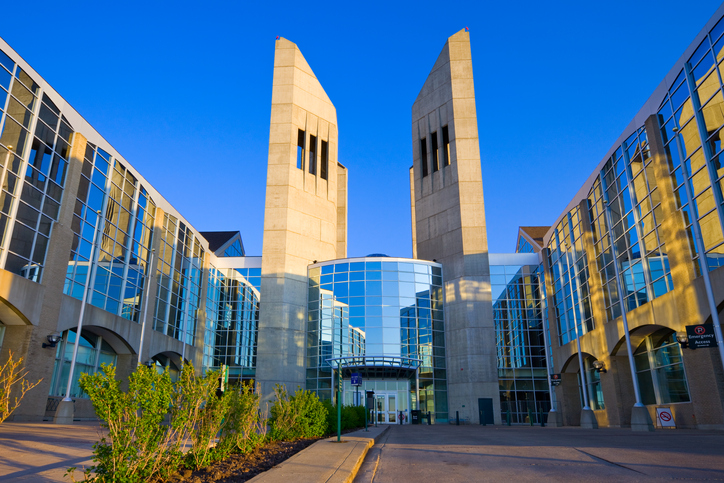Featured Guest
You’ll find this guest among our growing roll of Urban Champions.
-
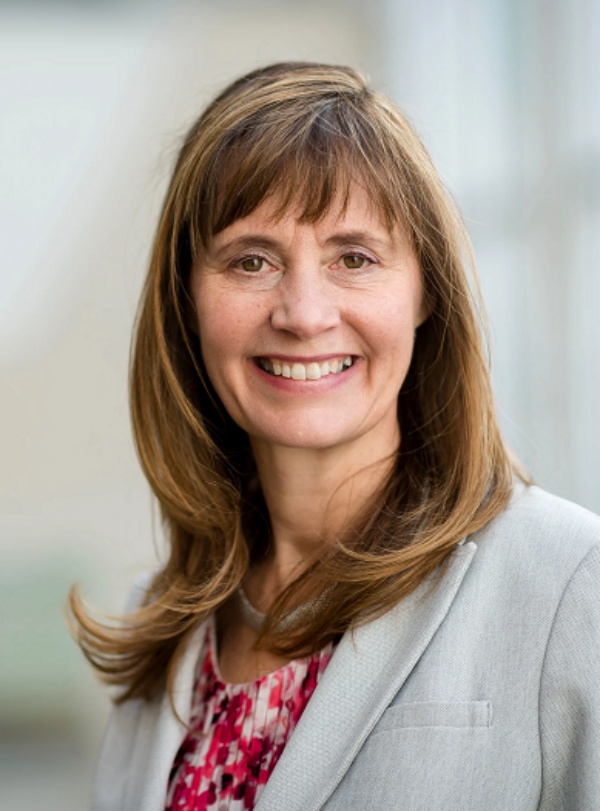
Shauna Sylvester
ED, Morris J. Wosk Centre for Dialogue
-
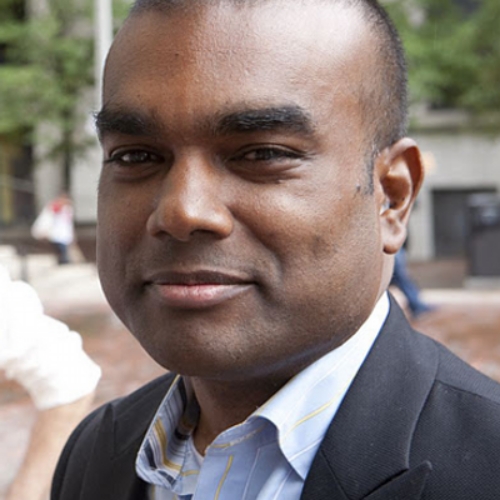
Nigel Jacob
Co-founder of the Mayor’s Office of New Urban Mechanics
-
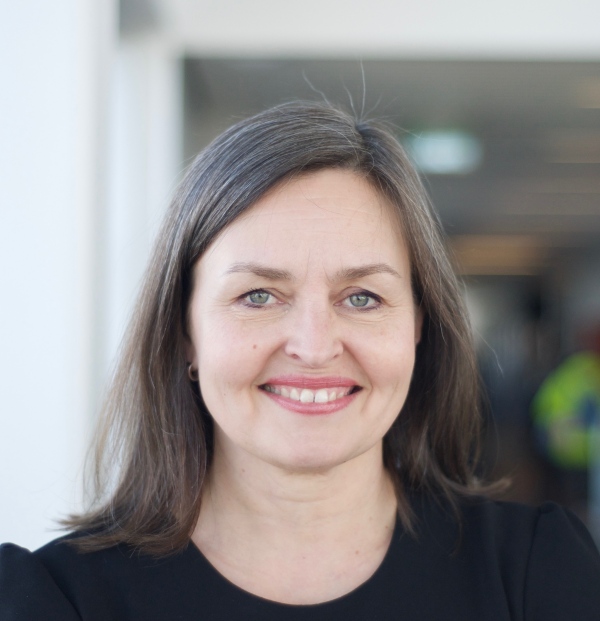
Åsa Kachan
CEO and Chief Librarian, Halifax Public Libraries
-
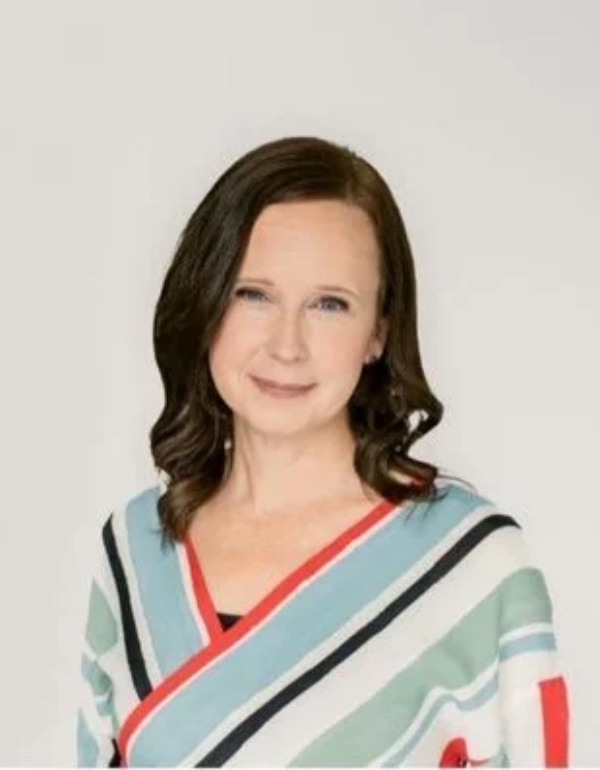
Anneka Smit
Director, Windsor Law Centre for Cities
Summary of Day one: Key actions identified and policy leadership required to recover Canada’s downtowns.
Full Panel Transcript
Note to readers: This video session was transcribed using auto-transcribing software. Manual editing was undertaken in an effort to improve readability and clarity. Questions or concerns with the transcription can be directed to events@canurb.org with “transcription” in the subject line.
Full Audience Chatroom Transcript
Note to reader: Chat comments have been edited for ease of readability. The text has not been edited for spelling or grammar. For questions or concerns, please contact events@canurb.org with “Chat Comments” in the subject lin
From Canadian Urban Institute: You can find transcripts and recordings of today’s and all our webinars at https://canurb.org/citytalk
06:31:34 Canadian Urban Institute: We are closing day one with Policy and Investment Leadership Implications with Nigel Jacob, Senior Fellow, Burnes Centre for Global Impact, Northeastern University, and Emeritus Co-Chair and Co-Founder, Mayor’s Office of New Urban Mechanics; Anneke Smit, Director and Associate Professor, Centre for Cities, Faculty of Law, University of Windsor; Shauna Sylvester, Executive Director, Simon Fraser University’s Morris J. Wosk. 06:31:47 Adriana Dossena: Thank you thanks you! 06:32:07 Philippa Von Ziegenweidt: The energy in this library discussion is so inspiring! 06:32:38 Karen Dar Woon: 👏🏼👏🏼👏🏼 06:33:21 Canadian Urban Institute: Nigel Jacob is the Co-founder of the Mayor’s Office of New Urban Mechanics, a civic innovation incubator and R&D Lab within Boston’s City Hall. Nigel’s work is about making urban life better via innovative, people-oriented applications of technology and design. Prior to joining the City of Boston in 2006, Nigel worked in a series of technology start-ups in the Boston area. This ground-breaking work has earned Nigel a number of awards including being named a Public Official of the year in 2011 by Governing Magazine, a Whitehouse Champion of Change and the Tribeca Disruptive Innovation award for 2012. 06:33:36 Canadian Urban Institute: Anneke Smit is Associate Professor in the Faculty of Law and the inaugural Director of the Windsor Law Centre for Cities. She is the co-lead of the Government of Canada-funded Cities and Climate Action Forum. Prior to joining Windsor Law she held a Lectureship at the School of Law, University of Reading (UK). Dr. Smit’s research, teaching and community engagement focus on urban planning and municipal law, and global refugee law and policy. Dr. Smit has worked on domestic and global refugee law and policy with government, intergovernmental and non-governmental organisations in Canada, the Balkans and the South Caucasus. She has been the recipient of the Windsor Law Students Law Society (SLS) Faculty Award, the Windsor-Essex Local Immigration Partnership Welcoming Communities Award, the University of Windsor Alumni Association Excellence in Mentoring Award, and the UWindsor Humanities Research Group Fellowship. 06:33:44 Shauna Sylvester, SFU Wosk Centre for Dialogue, she/her: Our Reimagining City Centre reports from Metro Vancouver https://www.sfu.ca/dialogue/news/events/past-events/rocc.html 06:34:07 Canadian Urban Institute: Shauna Sylvester is the Executive Director of Simon Fraser University’s Morris J. Wosk Centre for Dialogue, a Professor, Professional Practice in the Faculty of Arts and Social Sciences, a proud mother and a relationship focused leader. For over 30 years she has served as a convenor and facilitator to hundreds of citizen, community and stakeholder dialogues at the local, national and global level. She has led several complex global dialogues on climate and peace, dozens of national dialogues on democracy, foreign policy and energy and hundreds of dialogues locally on urban issues such as transportation and housing. As a social entrepreneur, Shauna is the Co-founder and first Executive Director of five Pan-Canadian initiatives: the SFU Public Square, Renewable Cities, Carbon Talks, Canada’s World and IMPACS – the Institute for Media, Policy and Civil Society, a media and democracy organization that operated in Canada and in conflict and post-conflict zones around the world. Shauna has been recognized as an SFU 06:34:20 Canadian Urban Institute: Noah Zon has built a career as a public policy leader in think tanks, not-for-profits, and the civil service. Before co-founding Springboard, Noah achieved concrete policy changes to reduce poverty in Canada as the Director of Policy and Research at the Maytree Foundation. Noah led the largest research stream at the Mowat Centre, a public policy think tank at the University of Toronto, developing policy agendas around technology, economic development, fiscal policy, and the social safety net. As a public servant, Noah worked in the Cabinet Office for the Ontario government, where he worked on climate change policy and intergovernmental relations. 06:36:27 Robert Plitt: The library example, office conversions in multifunctional space, reimagining churches all converge around underlying characteristic of resilience – adaptive and multi-functional spaces – 06:38:40 Laura Wall: “integrated mobility services” not just “transit mobility”, heritage designations usually only mean “colonial heritage”, homelessness the equivalent of the high school dance, libraries are social infrastructure 06:39:57 Robert Plitt: We can reimagine and redesign our downtowns as resilient systems – by creating the interpreted enabling policy, finance and governance arrangements 06:43:30 Elizabeth McAllister: Social infrastructure is about creating space where people meet to do things the love. The in-between of buildings is as important as civic buildings. How to we nudge people to meet each other and form connections. 06:43:40 Cameron Charlebois: Why doesn’t Canada have a Housing and Urban Development ministry. Given the proportion of Canadian citizenry who live in cities, the federal government needs to get involvement in the whole range of urban issues. This does not challenge the provincial jurisdiction over cities as administrations, but it does confirm urbanization as a national issue – from climate change to mobility to diversity and inclusion. 06:44:11 paul mackinnon: Amen, Cameron. If not now, with this gov’t, then when?! 06:44:24 Elizabeth McAllister: We had a department of Urban Affairs in the 70’s the provinces killed it. 06:45:27 paul mackinnon: True, but that was before the inroads FCM made with the Feds. Now they deal directly with cities, but it’s not done in a holistic way. The Feds deal with urban issues, but I think it’s safe to say there is no urban agenda or plan. 06:46:39 Shauna Sylvester, SFU Wosk Centre for Dialogue, she/her: Reposting by request: Our Reimagining City Centre reports from Metro Vancouver https://www.sfu.ca/dialogue/news/events/past-events/rocc.html 06:47:20 Marcy Burchfield: Absolutely–how does flexibility and pilots become the norm for cities 06:47:30 paul mackinnon: When Amarjeet Sohi was the Min of Infrastructure, he was asked if he felt a Fed Ministry of Urban Affairs/Cities was needed, and he said no (on a CUI panel). I wonder if he feels differently now that he’s a mayor. We should have asked him this morning 🙂 06:48:12 Elizabeth McAllister: Paul: we need better Fed-Prov-Municipal Partnerships on just about every issue from crime prevention, housing, traffic safety, health care. Our city wants to force seniors into one bedroom apartments and feds are working on aging in place. 06:50:35 paul mackinnon: Elizabeth, agreed. But the provincial governments seem very uninterested in downtowns. (They do care about some of these individual issues). 06:50:54 Mark van Elsberg: The learnings of Covid as mentioned , bike lanes and Patios.. are just a few. We keep talking bout reusing buildings and redeveloping site, but the physical fabric cant be forgotten. If we increase densities without rebuilding and reimagining our streets (our spaces in between) we will fail . This not a cost the Cities can upfront. The benefactor to great streets is actually NOT transportation services. If is our larger City, our Province and our nation that benefits from great Cities. this trickles to main streets and smaller towns and Cities 06:50:58 Shauna Sylvester, SFU Wosk Centre for Dialogue, she/her: Sarah Shulman’s InWithForward does important work on ethnographies in the citiies 06:51:57 Kay Matthews: Especially as municipalities will want to grab as much cash as possible, I imagine patio fees will be reintroduced. 06:52:29 Kay Matthews: The City of Toronto has Innovation Funds direct to BIAs 06:53:01 Jamie Van Ymeren: Do we think zoning/permits by default could be here to stay> 06:53:20 Catherine Deegan: City of Toronto just made their CAFE T.O. program more permanent and very well received by businesses, fees are slated for 2023 06:53:30 Mark van Elsberg: Patios should be incentivized not taxed. They are what makes people go out, slows down traffic and makes us reimagine our city of the future 06:53:34 Shauna Sylvester, SFU Wosk Centre for Dialogue, she/her: We have the LC3 – Low Carbon City Centers that our centre for innovation in investing in climate change reductions through loan loss reserves; in Vancouver we call it the Zero Emission Innovation Centre – it allows us to leverage funds across many sectors; program related investments, credit unions, foundation foundation etc. 06:54:12 James Tischler: Pilots should not be ‘special’ considerations, but instead enabled by-right and primary-focus across geographies and mixes… 06:54:20 paul mackinnon: One approach is a comprehensive Downtown Recovery Plan, which the 3 levels of gov’t then agree to jointly fund/execute. But create the plan first, before deciding who pays for what. That could be a pretty tangible follow-up to this very summit. 06:54:37 Jayne Engle: To be a bit provocative, most solutions proposed are within the structures, logics and systems that we have. What new institutions, governance, financing and ownership models are needed that would create not only resilient but also regenerative, radically inclusive downtowns? 06:55:26 Shauna Sylvester, SFU Wosk Centre for Dialogue, she/her: Time to have a fund for strengthening democracy in this country – we do it internationally but not in Canada and it is a clear issue; need new forms of engagement – alternatives to public hearings 06:55:44 Gordon Price: Biggest innovator in the pandemic that has had an impact on downtowns has probably been Amazon. 06:56:20 Elizabeth McAllister: Stats Can has the demographic data. We did a study on our community which conveniently is covered exactly by Stats Can. We were shocked at the level of poverty and have been working hard on addressing it since! Not easy …took years to have our poverty acknowledged by funders and the City. Stats Ca should help communities to use their data. 06:56:21 Mark van Elsberg: tactical urbanism is key to making change. It paint the future. and changes driver behaviour This allows incremental change by the change agents (redevelopments) Green standards and incentives require sustainable boulevards 06:56:35 James Tischler: Systems-focus instead of object(s)-focus… 06:57:02 paul mackinnon: Case in point in Halifax: City needed to step up and pay for housing (provincial mandate), so are now balking at supporting a provincial art gallery. But both things are good for downtown. These sorts of turf wars are not helpful. 06:58:50 Catherine Deegan: 100 % agreed Shauna 06:59:09 Nancy Tissington: Paul you are 100% correct 07:01:06 Shauna Sylvester, SFU Wosk Centre for Dialogue, she/her: climate is a game changer – who do residents look to when the floods, fires or heat dome come – cities – there has to be a way for cities to renegotiate their relationship with the federal government 07:02:24 Mark van Elsberg: Cities need to empower the community experts with skin in the game (BIAs and Community groups) creating the visions, supporting objectives of all levels of govt and identifying and engaging the local partners to build each piece of this puzzle. The FED DEV recovery program was for Shovel ready projects. Noone has shovel ready unless they have funding.. Communities need funding to create the shovel ready designs, find funding partners and once organized there needs to be a threshold where higher levels of govt fund the gap. 07:03:46 Kay Matthews: There is only one taxpayer 07:04:00 Shauna Sylvester, SFU Wosk Centre for Dialogue, she/her: Innovation on democracy – change the public hearings; citizen assemblies; citizen juries; Oregon citizens review panel – these are existing models 07:04:12 Mark van Elsberg: Model it on waterfront Toronto and make sure design excellence and equity is also part of the formula 07:05:05 Kathy McLaughlin: Mark makes some excellent points! Funding drives a lot of this work… it would be great to get funding to develop the projects rather than needing to have them ready in case funding becomes available. 07:05:11 Shauna Sylvester, SFU Wosk Centre for Dialogue, she/her: we have a existing transportation/land use planning table – Moving in a Livable Region – confidence building space for new thinking, innovative ways of working, visioning across the region 07:05:54 Shauna Sylvester, SFU Wosk Centre for Dialogue, she/her: Check out the City of Burnaby’s You’re Home. Your Voice. Process – new way of approaching housing – with residents – great innovation and responsive 07:06:04 Sarah Vereault: re: Housing, various levels of govt need to provide both carrots to incentive private sector to build affordable housing and sticks to require a certain percentage of development to be affordable – realizing these things are already in place, but clearly not in the right amounts/configurations for the whole country to be facing a housing crisis 07:09:20 Gordon Price: In Vancouver, indigenous development is one of the greatest opportunities for innovation and non-traditional responses. MST Development + private sector developers – quite a combo. 07:10:59 Kristen Shima: 🥰 07:11:14 Mark van Elsberg: We need a rating system which quantifies how our ROWs , our streets impact health, climate,safety, equity etc. We need a menu on how to go from a D to an A. We need a mechanism to incentivize other partners along the edges, and the utilities down below to participate in the rebuild. This needs to come from above, through legislation and permission. Once there are visons that can be properly assessed, all levels of govt must play a part in the cost and success 07:12:06 Shauna Sylvester, SFU Wosk Centre for Dialogue, she/her: I think they are living it now so climate is coming up in terms of understanding and engagement 07:13:28 Mark van Elsberg: Back Better Build 07:13:36 Jayne Engle: Mayor’s Offices for the Future 07:13:36 Colette Murphy: Wise words to support making big change from Alex Himelfarb https://afhimelfarb.wordpress.com/2021/11/07/making-big-change/ 07:13:49 Mary: Increase in Population will support efficient transit system. Attracting people and talent to the City is key 07:14:14 Catherine Deegan: across cities/states/globally both vertically and horizontally 07:14:38 paul mackinnon: Great panel! 07:14:47 Laura Wall: thank you everybody! 07:14:52 Sarah Vereault: thank you! great sessions. 07:14:54 Canadian Urban Institute: Thank you everyone!!! 07:14:55 Kate Fenske: Thanks all! Especially Paul. 😉 07:14:57 Jenna Davidson: Thank you so much for the fantastic and inspiring day! 07:14:57 Shauna Sylvester, SFU Wosk Centre for Dialogue, she/her: Thanks for the great discussion especially on chat 07:14:59 Rebecca Kaiser: Thank you so much for all of this. 07:15:02 Tzu Chen Wang: thank you! 07:15:04 Maryam Mahvash: Thanks everyone! 07:15:17 Kay Matthews: 🙌🏻 07:15:18 Canadian Urban Institute: For everyone who was asking, here’s a link to our “cities” playlist: https://open.spotify.com/playlist/2FYY7rZ9QiTZ8opbfTQyWA?si=r8LgYX6JQ2yCpoDn6rMmqA&fbclid=IwAR0ewKrR7UX7Uoqv24mDlQN_jZ_bUVysDKY-7HFGjYofpLBkKCjniJkIK1E&nd=1 07:15:24 Sophia Symons: Thanks to all the panelists for the great perspectives!! 07:15:27 Shauna Sylvester, SFU Wosk Centre for Dialogue, she/her: I love CUI’s programming – fantastic! 07:15:29 Catherine Deegan: Great sessions all day – thank you, looking forward to tomorrow 07:15:30 Canadian Urban Institute: Send your songs to us! 07:15:36 Jane MacCarthy: Thanks—looking forward to tomorrow! 07:15:37 Donald McConnell: Great stuff! Thanks. 07:15:37 Janice Campbell: thanks and CHEERS folks … very informative day. 07:15:40 Voncelle Volté: ⚡ Thank you, for another amazing summit. 🌻🌻🌻 07:15:48 Marcy Burchfield: Great job CUI staff!! & Mary 07:15:55 Craig Walker: Thanks panelists! 07:16:01 Nancy Tissington: Thank you !! 07:16:58 Sean Carter: Thanks for a great discussion! 07:17:59 Mary W Rowe, she/her, Canada’s Urban Institute/IUC: thanks all! 07:19:02 Tom Yarmon: excellent presentations and discussion today. Thank you Mary, CIU and panelists. Mind opening. Ty